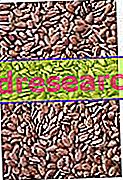
What is Trizivir?
Trizivir is a medicine containing three active substances: abacavir (300 mg), lamivudine (150 mg) and zidovudine (300 mg). It is available in blue-green capsule-shaped tablets.
What is Trizivir used for?
Trizivir is an antiviral drug, indicated for the treatment of adult patients infected with human immunodeficiency virus (HIV), the virus that causes acquired immune deficiency syndrome (AIDS). This combination is used to replace the treatment based on the three components in doses similar to those present in Trizivir. Patients must have previously taken the three active substances separately for at least 6-8 weeks before switching to Trizivir.
Doctors should prescribe Trizivir after considering the potential improvement in patient adherence to treatment, the expected efficacy of the medicine and the risk associated with the active ingredients. Trizivir should only be prescribed to patients with high levels of HIV in the blood (above 100, 000 copies / ml) after careful consideration.
The medicine can only be obtained with a prescription.
How is Trizivir used?
Treatment with Trizivir should be started by a doctor who has experience in the treatment of HIV infection. The recommended dose of Trizivir for patients over 18 years of age is one tablet twice a day, to be taken with or without food. If discontinuation of therapy with one of the active ingredients (abacavir, lamivudine or zidovudine) or a change in dosage is necessary in the case of patients with problems affecting the kidneys, liver or blood, separate preparations of abacavir, lamivudine are available and zidovudine. Trizivir should not be used in patients with hepatic or renal insufficiency. For more information, see the package leaflet.
Patients taking Trizivir should be given a special warning tag that summarizes the main information on the safety of the medicine.
How does Trizivir work?
All three active substances of Trizivir, abacavir, lamivudine and zidovudine, are nucleoside reverse transcriptase inhibitors (NRTIs). They act in the same way, blocking the activity of reverse transcriptase, an enzyme produced by HIV that allows the virus to infect cells and reproduce. Trizivir reduces the amount of HIV in the blood, keeping it at a low level. Trizivir does not cure HIV infection or AIDS, but it may delay the damage to the immune system and the development of infections and diseases associated with AIDS.
The three active substances were already available in the European Union (EU): abacavir obtained the marketing authorization under the name of Ziagen in 1999, lamivudine was authorized for marketing under the name of Epivir in the 1996 and zidovudine has been available in the EU since the mid-1980s.
How has Trizivir been studied?
No specific studies have been conducted on the single tablet that combines the three constituents. The pharmaceutical company presented the results of studies conducted on abacavir, lamivudine and zidovudine taken simultaneously, performed as part of the Ziagen examination. The company also looked at how the single tablet is absorbed by the body compared to the separate tablets.
What benefit has Trizivir shown during the studies?
In the studies conducted during the development of Ziagen, the combination of the three active ingredients proved to be at least as effective as the combined therapeutic regimens of comparison in keeping viral charges low. The single tablet was absorbed by the body just like the separate tablets.
What is the risk associated with Trizivir?
The most common side effects with Trizivir (seen in more than 1 patient in 10) are headache and nausea. For the full list of all side effects reported with Trizivir, see the Package Leaflet.
About 5% of subjects treated with Trizivir develop hypersensitivity reactions (allergic reactions), which generally occur within the first six weeks of treatment. Some of these cases may have a fatal outcome. Symptoms almost always include fever or rash. Other very common symptoms may include nausea, vomiting, diarrhea, abdominal pain, headache, signs of liver injury in the blood, myalgia (muscle pain), dyspnoea (difficulty breathing), cough, lethargy, malaise. Patients treated with Trizivir are given a card listing these symptoms in detail so that they can be made aware of them. If they develop an allergic reaction, patients should contact their doctor immediately. For more information, see the package leaflet.
Trizivir must not be used in patients who may be hypersensitive (allergic) to lamivudine, zidovudine, abacavir or any of the other ingredients, or to subjects with hepatic or renal insufficiency. Because it contains zidovudine, the medicine should not be given to patients with low neutrophil count (a type of white blood cell) or anemia (low levels of hemoglobin, the protein in red blood cells that carries oxygen in the body).
As with other anti-HIV drugs, patients receiving Trizivir may be at risk of lipodystrophy (changes in the distribution of body fat), immune reactivation syndrome (symptoms of infections caused by the reactivation of the immune system) or osteonecrosis (death of bone tissue). and therefore more fragile bones). Patients with liver problems (including hepatitis B or C) may be at an increased risk of developing liver injury when treated with Trizivir. Like all other NRTIs, Trizivir can also cause a condition called lactic acidosis (accumulation of lactic acid in the body) and, in the children of mothers treated with Trizivir in pregnancy, mitochondrial dysfunction (injuries to energy-producing cellular constituents that can cause problems blood).
Why has Trizivir been approved?
The Committee for Medicinal Products for Human Use (CHMP) decided that Trizivir's benefits are greater than its risks for the treatment of HIV infection in adult patients. This fixed combination replaces the three components (abacavir, lamivudine and zidovudine) used separately at similar dosages. The committee noted that reducing the number of tablets patients are required to take can simplify adherence to therapy and that the benefit of Trizivir was observed especially in patients who had previously never been treated or had only been moderately treated for HIV infection and where the disease was not at an advanced stage. The Committee therefore recommended that Trizivir be given marketing authorization.
More information about Trizivir:
On 28 December 2000, the European Commission granted a marketing authorization for Trizivir, valid throughout the European Union, to Glaxo Group Ltd. The marketing authorization was renewed on 28 December 2005.
The full EPAR for Trizivir can be found here.
Last update of this summary: 11-2007.



